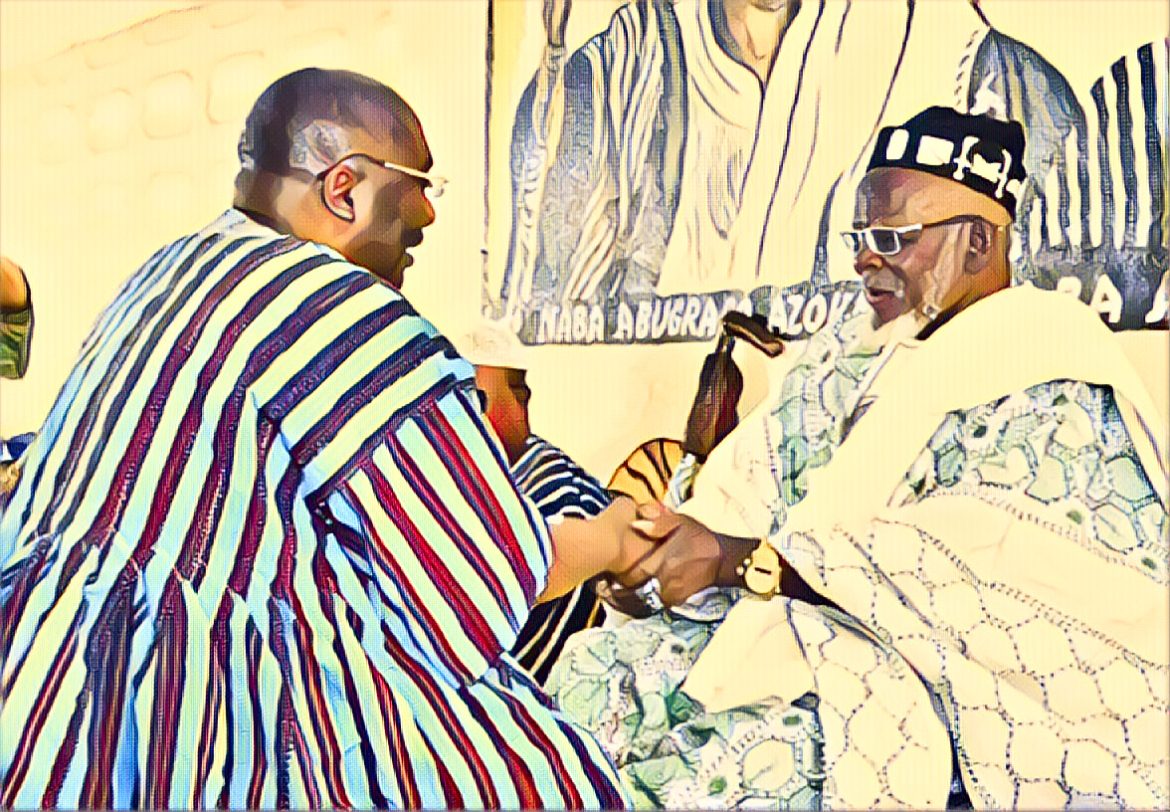KEY POINTS
- Ghana’s Bawku chieftaincy dispute reignites as accusations.
- Supporters advocate judicial solutions to prevent the conflict from degenerating.
- Mamprusi leaders advocate Kusasi use legal channels to address the dispute.
Bawumia, the Ghanaian Vice President, faces increasing pressure due to the Bawku chieftaincy dispute. His supporters dismiss allegations of his involvement in the conflict as baseless and rooted in his Mamprusi heritage.
The Mamprusi and Kusasi communities have been engaged in a long-standing feud over traditional leadership in Bawku, resulting in mutual accusations. Some Kusasi leaders claim Bawumia aligns himself with the Mamprusi faction because of his ethnic background.
Court rulings and government involvement
Political observers and supporters argue that Bawumia’s refusal to intervene in chieftaincy matters aligns with Ghana’s policy against political involvement.
The chieftaincy conflict predates the NUMs, escalating in 2023 when the Mamprusi appointed Bawku Naa Alhaji Seidu Abagre Sheriga, who was arrested following a High Court warrant. The Court of Appeal in Tamale reversed the illegal order against Sheriga, allowing him to resume his role.
Supporters of the Vice President opposed this legal process, claiming that political figures or ethnic affiliations should not take center stage.
“This situation is a matter for the courts and traditional councils, not politicians,” said Mustapha Ahmed, a legal representative for the Mamprusi community. “Bawumia should not be associated with the matter simply because of his background.”
Calls for judicial solutions
Observers and political analysts consider the judiciary and traditional governance institutions as the key to resolving Ghana’s chieftaincy disputes, rather than political intervention.
This approach would help shift the focus away from ethnic blame and toward finding a constructive solution. “Bawumia’s ethnic background should not overshadow the government’s commitment to neutrality,” said Kwame Mensah, an Accra-based political analyst. “The courts and traditional councils can only resolve this dispute, as Ghanaian law and tradition have long prescribed.”
Supporters contend that public accusations jeopardize community cohesion and draw innocent parties into rancor. They insist that judicial remedies provide the most effective route to lasting peace.





5 comments
Die neuen Casinos online sind meist moderner aufgestellt als
alte Plattformen. Manche hauen ein paar Freispiele oder Bonus
Crabs raus, andere lassen dich erst mal im Demo-Modus
reinschnuppern. Beispiele für seriöse Newcomer sind GoldSpin, PlayiO und CoinCasino.
Neue Online Casinos im Jahr 2025 bieten spannende Möglichkeiten für Spieler,
bringen aber auch Herausforderungen mit sich. Es gibt ein paar
wenige neue Online Casino Seiten, die VR Optionen anbieten. Hierbei verschiebt sich dann
die Wahrnehmung von digitalem Spiel online und realen Dealern, die man sehen kann.
Die digitalen Währungen wie Bitcoin oder Ethereum
und ihre Blockchains bieten viel Potenzial für den Einsatz
im Glücksspielbereich. Skrill ist eine sichere und zuverlässige Methode für online
Zahlungen in Echtzeit. Manche Casinos bieten eine
eigene Casino App an, während andere auf mobil-optimierte Webseiten oder eine
progressive Web-App setzen. Die Live Dealer Casinos der jungen Plattformen sind stark aufgestellt und bieten dir eine Auswahl von mehreren hundert Spielen.
In einem Online Casino der neuen Generation bieten sich Spielern vielfältige
Möglichkeiten. Bankhalterspiele gibt es bislang nur in Bayern, weil
die Bundesländer dafür zuständig sind, aber abgesehen vom Freistaat keine Lizenzen vergeben haben. Die Datei
wird durch die Aufsichtsbehörde geführt und dient zur Überwachung des monatlichen, anbieterübergreifenden Einzahlungslimits.
Ein Grund dafür ist die weitreichende Neuregelung des deutschen Glücksspielmarktes im Internet.
References:
https://online-spielhallen.de/ihr-zugang-zur-gaming-welt-lucky-dreams-casino-login/
It also has adjacent facilities, such as a convention centre with meeting
rooms, a nightclub, two ballrooms and a theatre for show entertainment,
and 32 bars and restaurants. No charges will be processed on your card
at the time of booking. With over 20 years of industry experience, Atrium has earnt an impressive collection of awards & accolades which
celebrate Atrium’s commitment to creating a fine-dining buffet experience for all.
Whether you are seeking a hearty breakfast to start your day,
a sumptuous long lunch or an indulgent dinner, Atrium has a
generous and delicious buffet dining experience for every outing.
Crown Towers has cemented itself as the penultimate leaders of luxury tourism in Australia
as Crown Towers Perth joins Crown Towers Melbourne as
two of only three Australian hotels to receive the
Forbes 5 Star Rating. Speak to the Bell Service Captain on your arrival.Valet parking for our three
hotels costs $75.
Explore the range of offers and packages available
at Crown Spa Perth to plan your visit. Whether you are in need
of a massage, a facial or a complete wellness treatment, now is your time to indulge.
Our Policies regarding bookings, surcharges, cancellations, dress standards, allergies & dietaries are outlined in the
Terms section of each venue’s webpages. Please be advised
that all Crown restaurants reservations are available exclusively through our website.
Discover all the finer details to make your time at Crown Perth seamless and enjoyable.
With critically acclaimed restaurants brought to you by the
world’s culinary elite, Crown Perth offers dining at its finest.
Indulge in a hotel breakfast buffet or treat yourself to a hotel fine dining
experience. This time, FIFA is taking its
sport back into the smaller setting of street football, and additional tweaks on gameplay and better player customization make this installment a must-have for any FIFA fans.
References:
https://blackcoin.co/paysafecard-casinos/
Free online roulette games work in a similar way to
their real money equivalents. One of the great things about playing free online
roulette is the variety of different games on offer. Whether you’re playing for fun or practicing for real
money roulette, we’ve got plenty of free online titles to choose from below.
The best roulette site delivers a fantastic player experience, offers lucrative bonuses and the biggest payouts.
This is yet another reason to stick with the tried and true online casinos for roulette listed on this website.
Each casino has its own software so you will need to
download new software from every online casino for roulette games to work.
References:
https://blackcoin.co/10-minimum-deposit-casino-bonuses-in-australia-2025-guide/
paypal casinos online that accept
References:
empleosrapidos.com
online pokies paypal
References:
https://www.cybersecurityhouse.com/